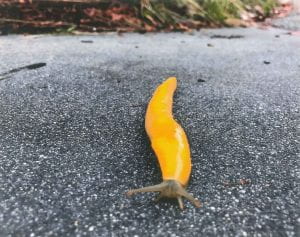
Untitled
I have a twin brother, and growing up with the boy version of yourself means everything that is yours, is his and vice versa. Walker and I would do everything together; he played baseball so I did too, not softball. That would be ridiculous! He wrestled, so I did too, for six and a half years. Because there were two of us, our parents never had the time to separate our individual childhoods traditionally. They didn’t find it reasonable to buy me barbies, and my brother trucks, specifically at least. Considering this, our childhood was a bit different and less on one side of the fence opposed to the other. Androgynous would be the best term to describe it; we were never told to be one or the other or pushed in any form although the opportunities were presented. My mom asked if I was interested in girl scouts and my brother if he wanted to join basketball, both of us rejected.
Growing up with such a close companion justified some of my choices when I was younger. If ever I questioned myself or orientation, I’d think about my brother. Is it weird that I skateboard and play with toy cars? Well my brother does too, resulting in the thinking that it can’t be that weird. Comparing myself to my brother is similar to headlights, in the manner that when it’ dark they guide your path, but only what is directly in front of you, where you were already going. When I was younger it never occurred to me that there was seemingly such a big difference between boys and girls, and frankly I did not care. Young kids don’t yet get the concept of there being a larger world than just their own, and it is that childhood perspective that I find myself longing for constantly when life turns socially sour. I think about what it would be like to be in that bubble again, and I also remember when it popped.
When I was ten I realised that some of the things I enjoyed and experienced were different than the norm. At family parties my relatives would comment on how aggressive I was, and gasp when I told them that I loved to go surfing and skate outside with my friends. At first it didn’t phase me; how could it be weird if the choices I made, made me happy? When I was thirteen, my aunt asked me if I really liked to wrestle, or if I was doing it because my dad wanted me to. She insisted that it was way too agressive for me and that I could get hurt. She asked if I wanted her to talk to my dad about it. I didn’t know that being aggressive was not seen as part of living life as a girl. Shortly after I quit wrestling, and began playing volleyball, which was what all the girls my age were playing. I’m not sure if what my aunt had to say had a huge impact on my decision, but it definitely was something I thought about often. When I first started volleyball, I convinced myself that I enjoyed it, and at some point I think I really did. I got serious about it when I started playing in high school, and began picking up other traits that younger me would frown upon. I began wearing dresses, makeup, and jewelry to attend team parties, and then continued on as such in my daily life. Fortunately I never got to the boy crazy stage that society seems to insist upon all girls being a part of, but because of this my mom would think I was a lesbian for many years to come. When I was fifteen, my brother got a telescope for Christmas, and I got a makeup case, despite the fact that I was the one always looking at the stars; an aspiring aerospace engineer. When I was sixteen I became captain of varsity volleyball, but I wasn’t happy and I knew it. I’d have self realization moments during practice where I’d wonder why I was even there. What was I getting out of it? I wasn’t having fun and I was brutally aware of that fact. During that year I saw a flyer for the girls rugby team. My friend convinced me to play on my offseason and I gave it a chance. I’ve never touched a volleyball since, and a way, I felt like I had completed my full circle and found what I was looking for. Rugby brought back the aggression I was so desperately missing. It brought me back to myself.
I myself did not understand or succumb to society’ pressure on women because I did not know. Once I understood, I realised that in our culture’ eyes I did not fit the norm. From a child’ perspective, it is hard to truly understand what is considered “good and bad”, until you’ve done both and crossed those lines. Although I had to defend my own sexuality to my mother, although I had to convince my aunts that I was not being forced to make decisions, although I had to explain to everyone why I wanted to be BatMAN for halloween not batwoman, although I questioned my beliefs because I felt I was different, and although I altered my life course to fit the norm, I came back around. I do not know what it is like to be considered a traditional female, because I wasn’t. I do know, that even despite the fact, I had been pressured by societal norms and molded myself and my beliefs to wedge myself into the puzzle that is society. I wasn’t aware of all of the unspoken rules and guidelines society had put in place for women, until I crossed just about every one.
